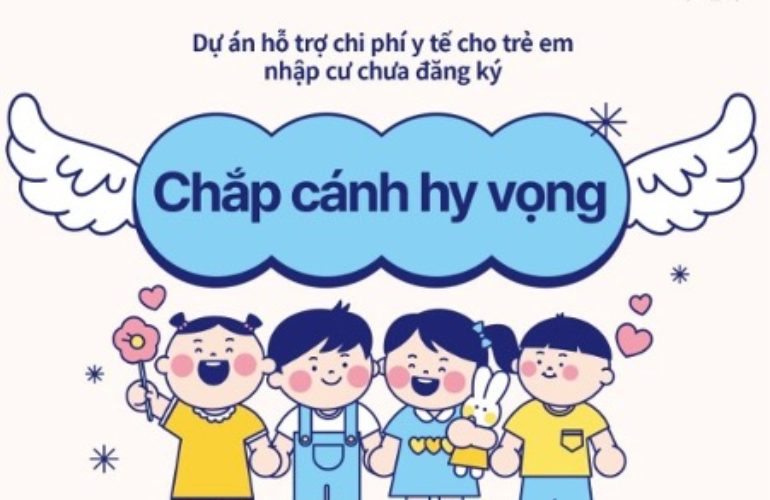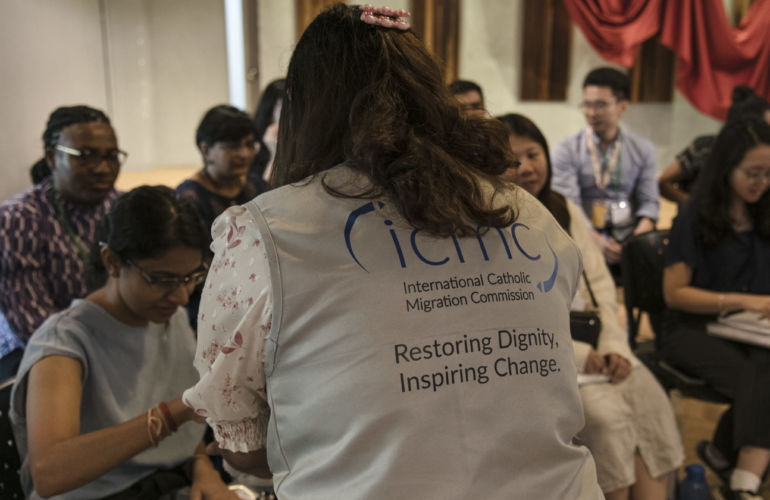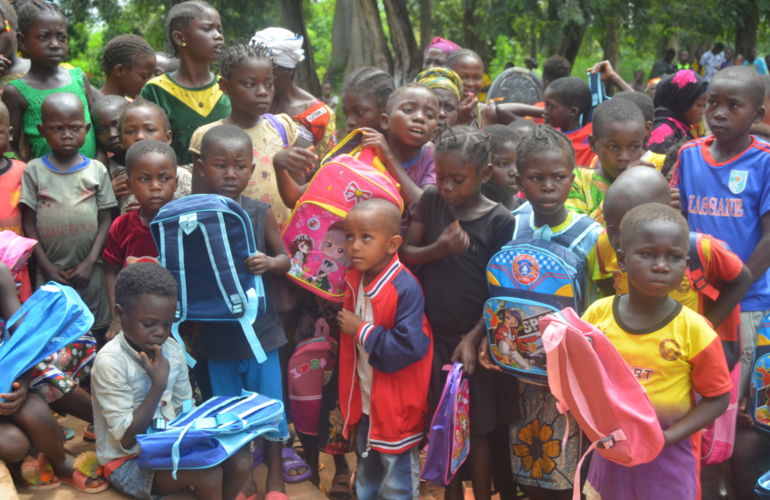Samina’s Art Therapy Helps Refugee Children in Pakistan Thrive in a Creative Space
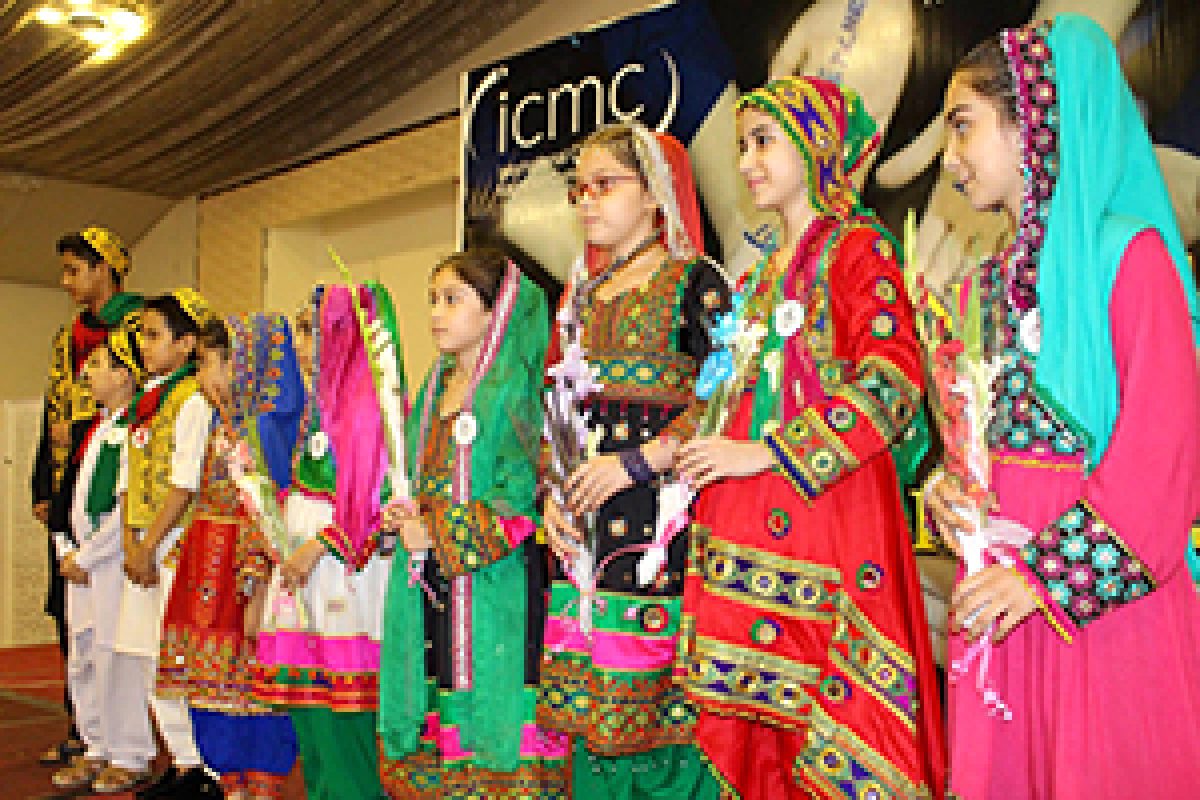
“Once upon a time there was a boy. This boy was an orphan; his parents had died. He was all alone, nobody used to help him and he was very poor. Sometimes he had his food and sometimes he did not have anything to eat. One morning he was sleeping in the forest. When he woke up, he saw an old man who needed his help. The old man asked, ‘O my boy can you help me cross the road?’
Boy answered yes. After crossing the road, the old man gave him a stick. The boy came back to the forest. The boy was hungry. When he waved that magic wand, he found good food. At first, the boy did not believe. When he waved the wand again, he found nice clothes. This is how he became a rich businessman but he always helped the poor people.”
Samina Jamshed, Education Officer at ICMC field office in Pakistan, proudly skims through the book “Fantasy in the real world of a refugee” she has put together to showcase the drawings and stories written by refugee children at the ICMC-run safe shelter in Islamabad.
“Although most of them have a new life in a new country, where they are resettled; this book is a connection between me and my students,” she comments.
Samina has worked for ICMC Pakistan since 2014, when the United Nations High Commissioner for Refugees (UNHCR)-funded project to facilitate refugee victims of violence was initiated by ICMC. Before joining the organization, she served as an Assistant Professor at several universities in Islamabad. As a certified visual artist, she taught art therapy to children with special needs, drug addicts, and to people living with disabilities. Later on, she started to visit nearby refugee camps and conducted art workshops as a volunteer and witnessed firsthand the challenging reality faced by refugees on a daily basis.
“Coming to know refugees, being in direct contact with them, urged me to search for a solution to their educational needs,” Samina explains. Indeed, UNHCR only funds primary school programs, until grade 5. Samina knew there was a gap to be filled. As an energetic self-starter, she took on the challenge to secure refugee children fully funded scholarships for secondary level education until grade 10.
Since 2017, Ali Trust College, an educational institution funded by a private trust managing several philanthropic projects related to health care and education, has partnered with ICMC, sponsoring 100% scholarships for 50 Afghan girls. Stationery, books, and uniforms are all included in the scholarship package. “These girls only have to think about studying and enjoying their school experiences,” Samina enthusiastically acknowledges. The agreement with Ali Trust College has been established for an indefinite time period.
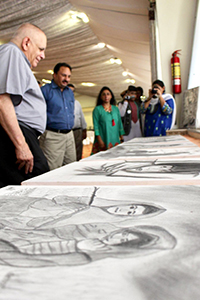
This momentous achievement was not enough for the restless Samina. She still conducts home visits and evaluation tests to identify the most vulnerable refugee children who would benefit from a sponsorship program funded by individual donors to make it possible for refugee children to attend one of the four local schools ready to accept them. At present, 20 children have been sponsored through the adoption program, and the number is steadily growing.
“I use all my networking skills to find donors who could adopt these children; I use my own contacts, go to local events and meet generous people who could help me in my job. I am always on the lookout for more individuals interested in donating and helping a refugee child go to school,” Samina relates.
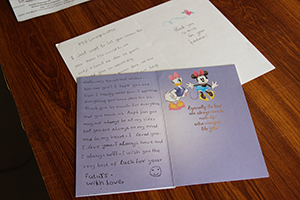
By setting up high standards and achieving gratifying results, ICMC has promoted education beyond 5th grade among refugees in Pakistan. Non-formal education classes in the ICMC’s safe shelter have provided children with an opportunity to explore creative writing and drawing, build up their self-esteem and restore their hopes thanks to such key role models as Samina and the rest of the Pakistan team. “Refugee children learn really fast. Every writer of the story was given individual time with the teacher, which let me explore each child’s personality much closer,” she observes. “It has been a beautiful journey, from concept sharing to drawing and writing the story.”
Samina often receives letters and greeting cards from her previous students, refugee children who have now been resettled to a third country. They often seek her wise guidance on future school plans and professional advice while sharing with her accomplishments and dreams in their new home. The bond between teacher and children is stronger than ever. “Working for ICMC is so “me”; I’m into it all the time and I feel like it’s worth putting so much effort in it as we better refugees’ lives, especially children’s,” she concludes, pointing to the many colorful cards she has received from her bright, affectionate students.
